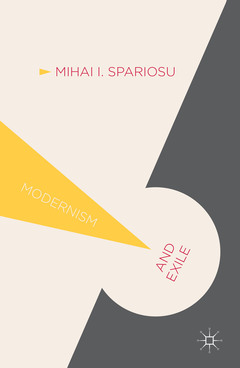Description
Modernism and Exile, 2014
Liminality and the Utopian Imagination
Modernism and... Series
Language: English
Keywords
empire; exile; Imagination; Modernism; Narrative; postmodernism
209 p. · 14x21.6 cm · Hardback
Description
/li>Contents
/li>Biography
/li>
Mihai I. Spariosu is Distinguished Research Professor at the University of Georgia, Athens, in the USA. He holds a Ph.D. from Stanford University, USA, and has taught at several prominent universities around the world. He is the founder of a new field of study and practice, Intercultural Knowledge Management, which he proposed and developed in two books: Global Intelligence and Human Development (2005) and Remapping Knowledge (2006).




